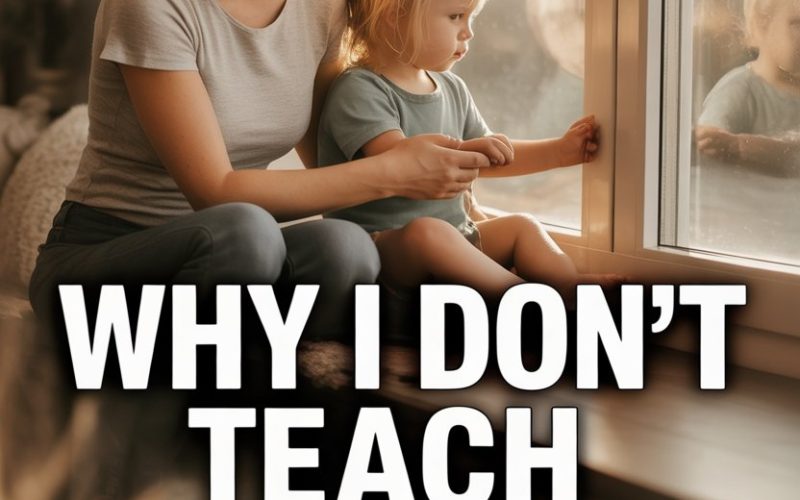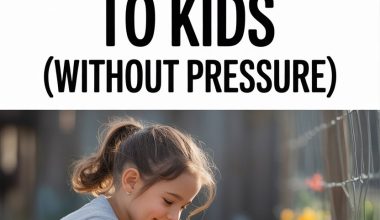If you’ve ever found yourself sweating through a parent-teacher meeting—wondering if your little angel is charming enough to win over the playground crowd—you’re in good company.
But here’s the thing: I don’t actually care if my kids are “liked.” And I’m not losing any sleep over it.
Popularity Is Overrated—And Overhyped
It’s practically a sport: the race to be popular starts earlier than you think. You only need to peek into a primary school birthday party to see the social stratosphere at work.
Who sits where, who’s in the group chat, who gets a party invite—it’s all very Hunger Games with less archery but more sugar.
Parents aren’t immune either. There’s social pressure to raise children who are easy to get along with, universally beloved, the life of every classroom.
We want our kids to be “well-adjusted”—which often translates to “liked by everyone.” But popularity, as it turns out, is a fragile currency.
Researchers have found that popularity in childhood doesn’t reliably predict happiness, resilience or adulthood satisfaction. Sometimes, it even works against our kids’ real growth.
Kindness Over Conformity
Here’s a radical idea: our kids can be kind, inclusive, and respectful without earning a popularity trophy.
Teaching children to be “liked” often means teaching them to smooth over their quirks, fit in at all costs, or avoid conflict—even when they feel uncomfortable or disagree.
I’d rather my children be known for standing up for a friend or speaking their mind respectfully than for agreeing with every opinion in the lunchroom.
The goal isn’t to raise chameleons who change their colours to match any crowd. What matters is instilling compassion and courage, not consensus-building.
Teaching Self-Respect Trumps Teaching Likability
Chasing likability can send our kids a dangerous message: that their worth depends on other people’s approval. That’s a recipe for future doormats.
Kids who learn to validate themselves—who value their own ideas, feelings, and boundaries—grow into adults who don’t need every colleague or neighbour to be a fan.
Self-respect is a sturdier backbone than popularity. It’s what lets our children walk away from an unfair game or say no to a friend pushing them to break the rules.
According to psychology experts, teaching kids to listen to their own conscience over the crowd is one of the best gifts we can give them.
The Problem With Pleasing Everyone
People-pleasing is exhausting, even for grown-ups. For kids, it’s worse: the urge to be liked makes them vulnerable to peer pressure.
They might stay silent in the face of bullying, join in teasing another child, or say yes when every fibre of their being is shouting “no.”
None of us want that. So why model it?
Instead, we talk at home about the value of genuine friendship—how real friends accept your quirks, your weird hobbies, even your brightly coloured socks.
I encourage my kids to look for relationships that feel like a two-way street, not an exhausting audition. It’s quality, not quantity.
That’s harder to count on Instagram, but it matters a whole lot more.
Building Resilience, Not Just Rapport
Teaching kids to weather the occasional social squall is a lot more useful than teaching them to keep everyone happy.
Not every classmate will gel with your child. Not every coach, teacher, or neighbour will sing their praises. And that’s okay.
When my kids come home upset over a playground spat or a party they weren’t invited to, we talk about it.
I don’t rush to fix it. Instead, I’ll ask: “Did you stay true to yourself? Did you treat others kindly, even if they didn’t include you?”
Sometimes, the answer is yes. Sometimes it’s no, and that’s an opportunity for growth.
This builds resilience. According to Stanford’s Challenge Success project, children who understand that social setbacks are survivable (and temporary) develop stronger emotional muscles.
They bounce back better from disappointment. They’re less likely to view a missed invitation as a life sentence in social Siberia.
When Social Skills Matter (And When They Don’t)
Don’t mistake me—basic social skills matter. I do teach my children to say hello, to listen, to apologize when they’ve hurt someone, and to take turns.
These are baseline expectations, not strategies for climbing the social ladder.
What I don’t teach is masking their true selves to fit in. There’s a difference between being friendly and being a doormat. If my kids are quiet, that’s fine. If they’re a bit odd (aren’t we all?), that’s fine too.
There’s room for introverts, extroverts, and everyone in between. Nobody needs to perform a one-child charm offensive to earn their place.
Social Media and the Likability Trap
The siren song of social media amplifies the pressure to be liked. Literal likes! Hearts, stars, followers—measured in real time for all to see. It’s enough to make anyone crave approval.
But the Child Mind Institute warns that chasing digital validation can undermine self-esteem and fuel anxiety.
At our house, we talk openly about the difference between real-life relationships and online applause. My kids know that not every selfie is going to rack up “likes,” and that’s okay.
What matters is how they treat others—and themselves—when nobody’s watching.
Helping Our Kids Find Their People
Not every child will have a 30-strong circle of besties. Some kids are magnets, drawing friends like flies to honey. Others are a bit more… Marmite. That’s not a tragedy.
Instead of tallying up the number of party invites or followers, I encourage my kids to find their tribe—their people. It might only be one or two mates who really “get” them. That’s enough.
According to research from the Journal of Child Development, a single close friendship can do more for well-being than a sea of superficial connections.
How to Raise Kids Who Don’t Obsess Over Being Liked
Here’s what works in our house (and I say this as someone who once tried—and failed—to engineer the perfect sleepover guest list):
We talk about what matters. Not just being “nice,” but being fair, standing up for what’s right, apologizing when you’re wrong, and being brave enough to disagree (politely).
We celebrate individuality. If my daughter wants to wear a Batman cape to the shops, that’s her call. If my son decides he’d prefer reading to running laps, well, I’m not going to force him onto the football pitch to make friends.
We discuss boundaries. My kids know it’s okay to say no if something feels wrong, even if it means risking their popularity for a day (or a week).
We model it ourselves. I’m not joining every PTA WhatsApp group out there, and I’m fine with that.
My own friends are the people who like me for my wonky sense of humour and inability to remember school bake sale dates.
We normalize disappointment. It hurts to feel left out.
But we don’t rush to erase every ounce of discomfort. Instead, we let our kids feel it, process it, and move forward. That’s where empathy and grit grow.
No More Popularity Contests
Parenting has enough challenges without worrying if your child is a future prom king or class clown.
What kids need isn’t a crash course in likability but adults willing to help them build character, confidence, and compassion.
It’s a big, occasionally awkward world out there. Not everyone will clap for our kids, and that’s okay. If they know who they are—and have the backbone to stick to it—they’ll find the people who matter.
And if they don’t? Well, there’s always us, waiting at the front door with a hug and a snack. That, I promise, never goes out of style.




